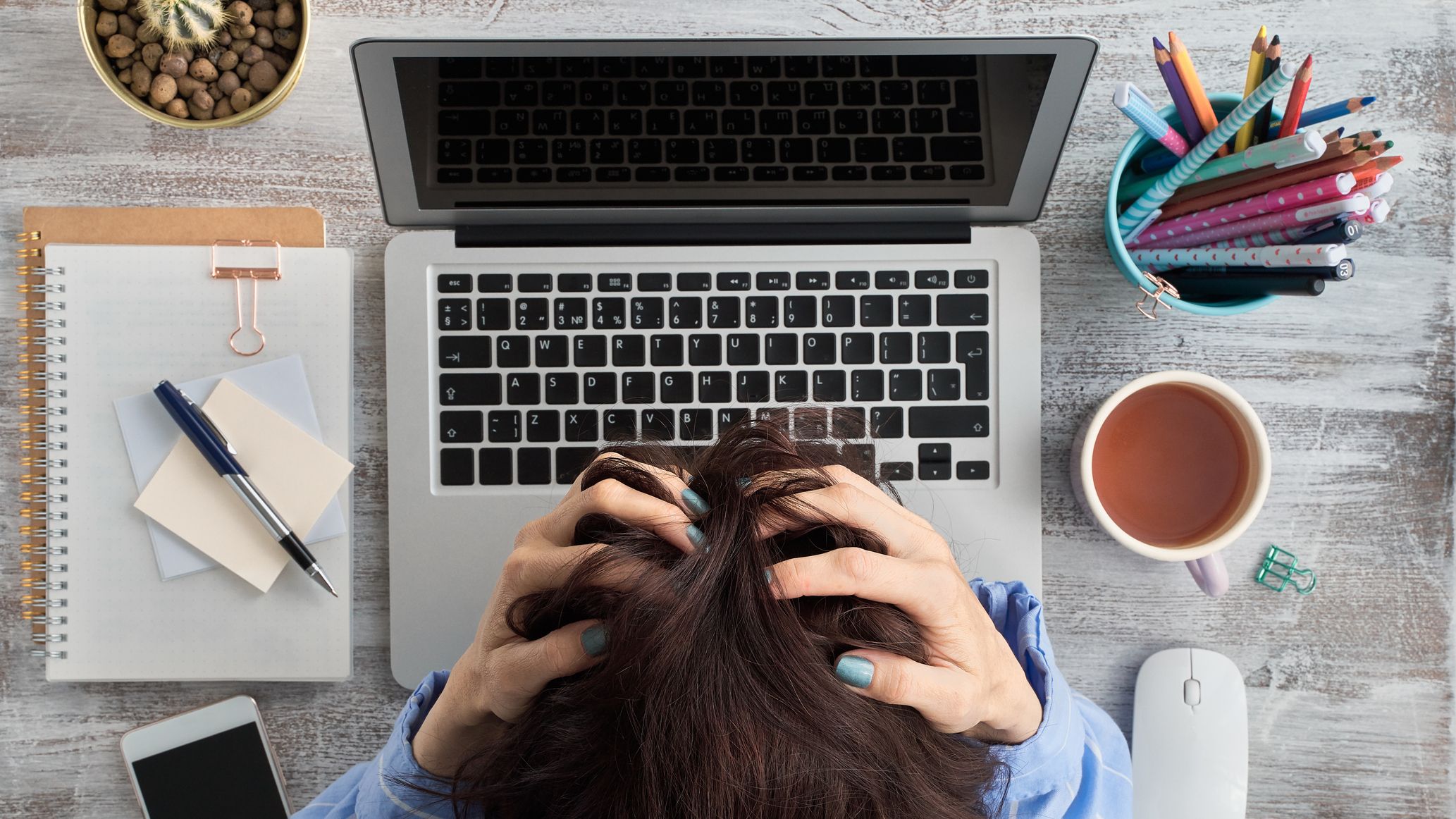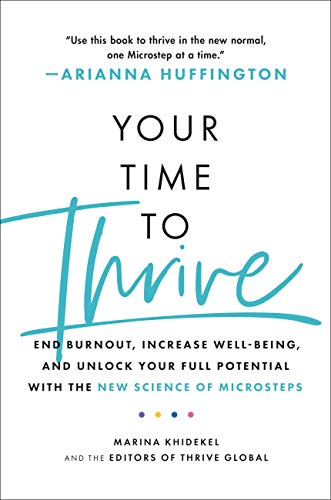Five Small Steps for Beating Burnout
The pandemic has exacerbated burnout, especially for women. Here are five things you can do right now to feel less stressed and more well-rested, instantly.

To say the past year has been unprecedented is by now a cliché, and yet, it’s also true. And women might be feeling the strain most of all: According to a recent study, 53 percent of women report that their mental health suffers to the point of burnout due to their job. Burnout can manifest in so many ways: There are, of course, the more obvious signs of burnout, like being exhausted, or even sick, more frequently. But there are more subtle symptoms as well, such as the inability to focus and be fully present with others. One of the most insidious things about burnout is that it compromises our judgment, including our judgment about ourselves. So you might think you’re doing fine, but if you’re not getting the sleep you need, or if you’re spending day after day in back-to-back virtual meetings and in front of screens, it’s very likely you’re not doing as well as you might think you are.
Even before the coronavirus pandemic began, women were already shouldering extra responsibilities, including housework. And whether we're still working from home or going back into the office, that disproportionate burden on women has only gotten worse. A study from LeanIn.org found that in 2020, women experienced the symptoms of burnout at twice the level of men. That could be one reason why we're seeing a mass exodus of women from the workplace. When everything about how we live our lives has been turned upside down, just getting through the day can be stressful.
But there are steps we can take to beat burnout and even thrive during this historically difficult moment. It might sound like a paradox, but the way to navigate uncertainty and stress during times of change on a massive scale is to make very small adjustments in your own life—what I call microsteps. This allows us to control what we can control...and it turns out, we can control quite a bit about our immediate world. When we go small enough, these changes allow us to make big improvements to our physical and mental well-being. That’s the foundation of Thrive Global’s new book, Your Time To Thrive. It’s a guide based on a whole-human life plan and behavior change system that will help you enhance every aspect of your physical and mental well-being, performance, resilience, and relationships.
By making microsteps too small to fail, we can incorporate them into our daily work and home lives right away. Even—and especially—during times of stress and uncertainty, it's important to take charge of your well-being and mental resilience. Below, are five microsteps you can use to beat burnout right now.
Just Breathe.
Neuroscience shows that we can course-correct from stress in as little as 60 to 90 seconds. That’s why one of my favorite microsteps is to simply focus on the rising and falling of your breath, even for 60 seconds. This activates the parasympathetic nervous system, lowering levels of the stress hormone cortisol. This is one I use as a reset throughout the day— before meetings, after meetings, or even during meetings.
Habit Stack Your Gratitude.
One way to create a new healthy habit is through what researchers call “habit stacking,” which is to attach a new habit onto an existing one. This is how I do my favorite combo-microstep: Every time I brush my teeth, I think of three things I'm grateful for. Gratitude is one of our most powerful emotions, and the science shows it helps lower stress and anxiety. Doing it while brushing your teeth is an easy way to bring the amazing benefits of gratitude into your life without requiring any more from an already busy day.
Stop Doomscrolling.
Of course we all want to be informed—we’re still living with a public health crisis and being knowledgeable and up to date can help us feel more prepared. But as many of us found out during the 2020 election, doomscrolling through the 24/7 news cycle can just add to our stress. We can break this by setting a news cutoff time for ourselves. This allows us to unplug and recharge by connecting with friends or loved ones, or have some downtime to connect with ourselves. It also helps us get a better night’s sleep, which in turn helps us put stressful news into perspective. And don’t worry—if you want to know what you missed, the news will still be there in the morning.
Get exclusive access to fashion and beauty trends, hot-off-the-press celebrity news, and more.
Schedule Active Time.
Put time on your calendar for exercise. We don’t miss meetings—even if they’re on Zoom—that we consider important in our lives, and we should give the same priority to getting some kind of movement throughout the day. Research shows that even just a few minutes of movement can have a big impact on our physical and mental health. It's easy for the day to fill up unless we block out that time ahead of time, so at the beginning of the week, in the mornings, or whenever you're filling out your calendar, don’t forget to pencil-in your time for exercise.
Don't Use Your Phone Right Before Bed.
We all love our phones. We know where they are, and how much they’re charged all day long. But our phones are repositories of everything we need to put away to allow us to sleep—our to-do lists, our inboxes, the never-ending demands of the day. Plus, the blue light they emit suppresses melatonin, the hormone connected to sleep regulation. So pick a time at night to turn off devices—and remove them from your bedroom—to wake up as fully charged as our beloved phones.
Arianna Huffington is the founder & CEO of Thrive Global, whose mission is to end the stress and burnout epidemic.
RELATED STORIES


